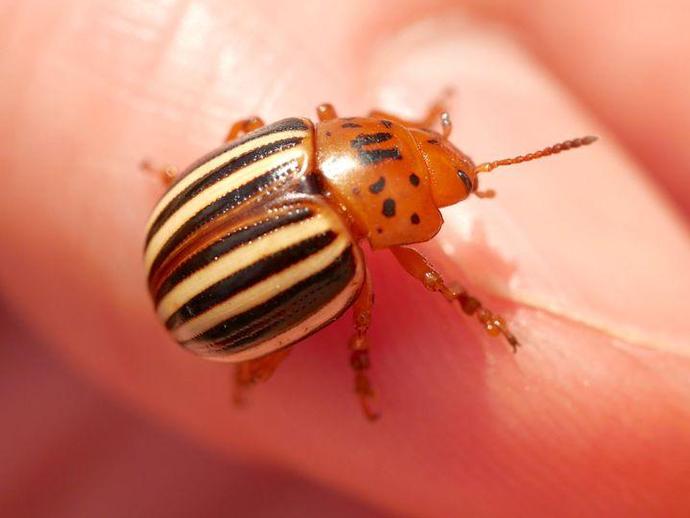June 10, 2021
It's time for the Thursday edition of #BenInNature presented by our friends at Carter Bank & Trust!
Green-thumbed readers out there might have an instant flash of recognition when they see this photo. At first glance, this insect looks virtually identical to the Colorado potato beetle (Leptinotarsa decemlineata), one of the most destructive and prolific pests of potato crops across the country. However, this is NOT a Colorado potato beetle; it's actually the false potato beetle (Leptinotarsa juncta)!
The easiest way to tell the difference is that the false potato beetle has a faint orange stripe on either side of its elytra (the hard shell that covers the flight wings). The Colorado potato beetle does not have this orange stripe. Additionally, the false potato beetle is a little bit bigger than its potato-loving cousin.
If you happen to find a false potato beetle near your garden, don't panic. While it does feed on plants in the nightshade family (the family Solanaceae, which includes not only potatoes, but also tomatoes, eggplant, bell peppers, and many others), it doesn't target agricultural crops. It generally prefers solanaceous weeds, such as Solanum carolinense, the Carolina horsenettle. If anything, the false potato beetle is a helper to humans rather than a pest.
ABOUT #BenInNature
Social distancing can be difficult, but it presents a great opportunity to become reacquainted with nature. In this series of posts, Administrator of Science Ben Williams ventures outdoors to record a snapshot of the unique sights that can be found in the natural world. New updates are posted Monday - Friday, with previous posts highlighted on the weekends. This series of posts is made possible thanks to the support of VMNH Corporate Partner Carter Bank & Trust (www.cbtcares.com).
NATURE PHOTO IDENTIFICATIONS
If you discover something in nature that you would like help identifying, be sure to message us right here on Facebook with a picture (please include location and date of picture) and we'll have our experts help you identify it!

 Hours & Admissions
Hours & Admissions Directions
Directions

